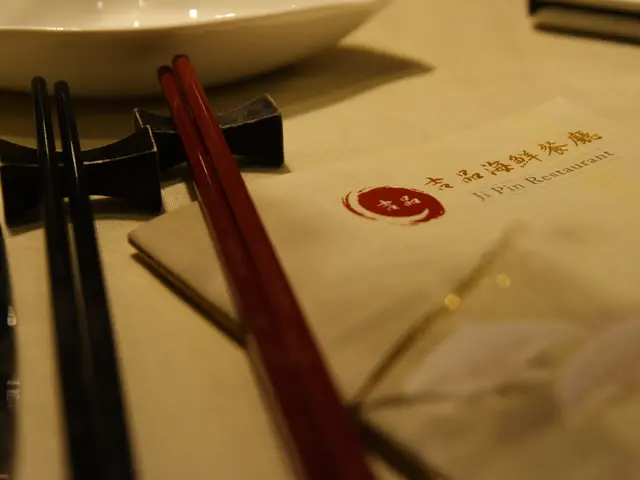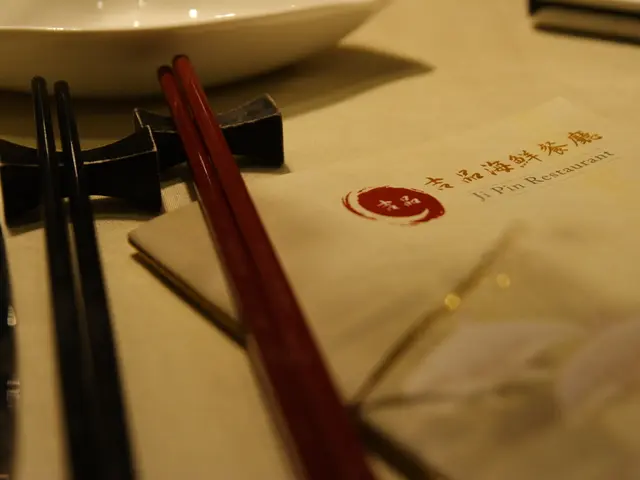Unveiling the Unknown Facts About Roulette: 5 Surprising Details You Might Miss
Roulette, the iconic casino game, has a fascinating history that dates back to the 18th century. Originating in France, it evolved from earlier concepts and devices from the 17th century, with the spinning wheel mechanism being inspired by the unsuccessful attempts of French physicist Blaise Pascal to create a perpetual motion machine [1].
By the 1720s, an early gambling wheel game called "roly poly" appeared in Britain but was banned by 1739 [1]. The roulette wheel as we know it today took shape towards the end of the 18th century in France, with its numbered wheel design influenced by the French game Biribi, a low-stakes lotto-style gambling game [1].
Over the 19th and 20th centuries, roulette became a staple casino game, spreading alongside the growth of European and later American casinos. The game, with its distinctive wheel featuring numbered pockets and a small ball, epitomized the increasing sophistication and formalization of casino gambling [2].
Roulette belongs to a long tradition of gambling that dates back thousands of years. Ancient civilizations used betting and gaming tools such as dice and lot-casting devices for divination and entertainment over millennia [3][5]. Although roulette is a relatively recent invention compared to these ancient games, it became one of the most iconic casino games worldwide [3][5].
The game of roulette offers multiple versions, including the American version with a double zero (00) and the European version with a single zero (0). In California, roulette is played with cards instead of a spinning wheel and ball, as a way to circumvent strict gambling laws [10].
Throughout its history, roulette has been associated with various legends. Some people believe that roulette was created by a French monk or a group of French Dominican monks [8]. Joseph Jagger and Dr Richard Jarecki were known for cheating in roulette by taking advantage of defective wheels and tracking patterns of number landings [6]. The game has also earned a reputation for potentially leading players to financial ruin [12].
Interestingly, the roulette wheel, both 0 and 00 versions, is sometimes referred to as the "Devil's Wheel" due to the numbers adding up to 666, a biblical reference to the number of the beast [13]. The number 17 is one of the most popular bets in roulette, potentially due to its association with the fictional character James Bond [4].
Casinos today replace equipment regularly to prevent cheating, especially in the era of high-level casino security and CCTV [7]. In California roulette, while the playing method differs from traditional roulette, the odds, payouts, and rules remain the same [10].
In summary, roulette: - Was inspired by 17th-century inventions, notably Pascal’s wheel experiment [1]. - Emerged as a recognizable form by late 18th-century France, incorporating elements from Biribi [1]. - Spread and evolved alongside the development of casinos in Europe and America over the following centuries [2]. - Belongs to a long tradition of gambling dating back thousands of years [3][5]. - Offers multiple versions, including the American version with a double zero (00) and the European version with a single zero (0). - Has a reputation for potentially leading players to financial ruin. - Is played differently in California, with cards replacing the spinning wheel and ball, to circumvent strict gambling laws. - The origins of roulette are not definitively known, with theories suggesting it was invented by French physicist Blaise Pascal, a French monk, or derived from an English game called Roly-Poly or "E.O" (Even/Odd). - Casinos today replace equipment regularly to prevent cheating, especially in the era of high-level casino security and CCTV. - Some people believe that roulette was created by a French monk or a group of French Dominican monks. - The name "roulette" comes from the French term for "little wheel." - The number 17 is one of the most popular bets in roulette, potentially due to its association with the fictional character James Bond. - Roulette may have been invented as a result of Blaise Pascal's attempts to create a wheel that could demonstrate perpetual motion. - Cheating in roulette has included methods such as using magnetic balls or rigged wheels.
In the evolution of casino games, roulette, the intriguing game with a numbered wheel and a small ball, originated from the 18th-century French game Biribi and emerged as a staple casino-and-gambling entertainment, becoming one of the most globally recognized casino-games, noted for its association with various legends and potential financial risks. On some blogs discussing casino-games, you might find discussions about the iconic roulette, revealing its fascinating history, the existence of multiple versions like the American and European ones, and its nickname, the "Devil's Wheel."





